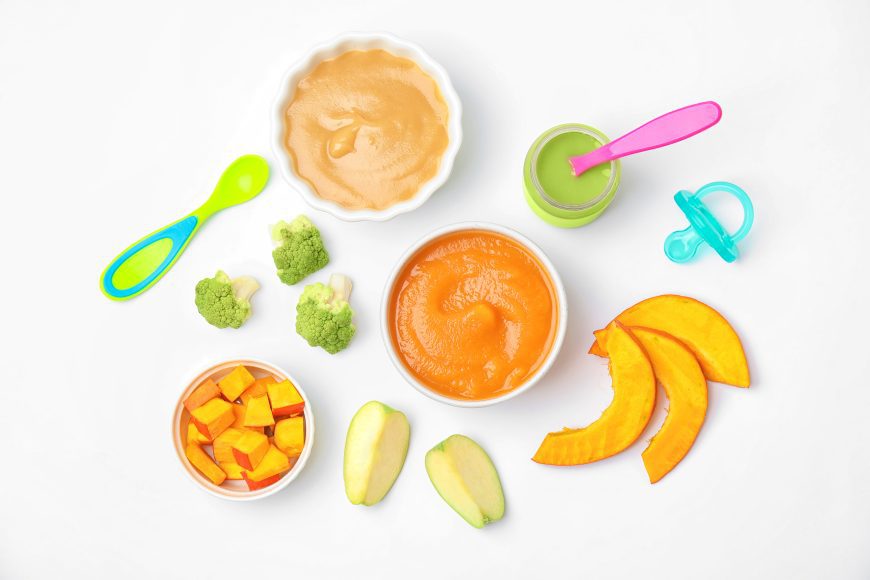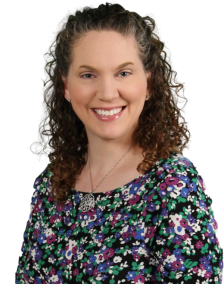Transitions can be tough on babies and their families. But the change that most often concerns parents is the one that transitions a baby from exclusively breastfeeding to solid food. My colleagues and I at Esse Health Pediatrics offer some tips and strategies to help moms, babies, and their families navigate the transition with confidence.
Timing is Everything
As is true for most things in life, it’s all about timing. Most babies are ready to include some solid food in their diets between the ages of four and six months.
Here’s how to know when your little one is ready to give solid food a try:
● She can sit up comfortably on her own.
● She is beginning to put things in her mouth: toys, your fingers, the dog’s ears.
● She shows interest in what the family is doing at the table during a meal.

Once these behaviors are in place, you can start with a single “meal” of solid food per day. And plan for just a tablespoon of food at first, letting your child use their fingers and tongue to explore new sensations and flavors.
At seven to nine months, most babies can begin drinking from a sippy cup. Start with water—one to two ounces at a time—in short practice sessions. A couple of things to keep in mind: Babies don’t need juice; even the “healthy” ones are full of sugar. And until their first birthday, breastmilk or formula is your child’s most important source of nutrition. At the end of the first year, you and your pediatrician can discuss a transition to cow’s milk.
What’s on the Menu?
Introducing a variety of food, one type at a time, makes it easier to identify the source of any reaction. Once one food item is found to be agreeable, you can introduce a second, and so on. The goal, a few months down the road, is three to five new foods a week.
For the youngest eaters (four to six months), try:
● Oatmeal baby cereal
● Pureed vegetable (sweet potato, green beans)
● Pureed fruit (banana, apple)
● Pureed vegetable (sweet potato, green beans)
● Pureed fruit (banana, apple)
You can make pureed food at home or use single-ingredient foods purchased at the grocery store. By six months, your baby will need additional iron in her diet.
Introduce iron-rich cereals and dark green vegetables.

By seven to nine months of age, you can feed solid (soft) foods once or twice a day. Most nine-month-old babies are eating three meals a day. Let your child decide how much is enough at each meal. You’re in charge of when, where, and what.
Rejecting a food is fine; just don’t replace it with one that the child prefers to avoid encouraging picky eating. Trust that your baby will get enough nutrition without encouraging pickiness.
Once you have introduced the first few new foods to your baby, you can begin to incorporate some of the things that most often cause allergic reactions. Again, introduce one new food from this list at a time.
● Peanut butter
● Eggs
● Dairy products (yogurt and cheese, for example; not cow’s milk yet)
● Wheat
● Tree nuts
● Shellfish
Starting these foods early and giving them often can help prevent a food allergy. For babies with eczema, first discuss the introduction of these foods with your health-care provider.
What to Avoid
Because your baby is new to this eating thing and doesn’t yet have the equipment needed for chewing, be mindful of choking hazards.
● Make sure food is thoroughly soft and mashable.
● Don’t offer hard, crunchy things (popcorn, nuts, or candies).
● Always feed your baby in an upright position—and never in a car seat when you’re driving or in a highchair when you’re not able to pay full attention.
Learn how to administer the Heimlich maneuver just in case choking happens.
Mealtime Joy
When you introduce your baby to solid food, you’re helping her become a participant in family mealtime fun. Keep your approach to all this light. This is your opportunity to help make food and meals a pleasure for your baby, giving her the best possible start to a lifetime of confident, healthful, satisfying eating.
For more information about your child’s nutrition, Esse Health Pediatrics offers five Nutrition Guides discussing everything you need to know about feeding your baby or toddler.
Dr. DePalma is one of 19 board-certified Esse Health pediatricians in the St. Louis metropolitan area and practices at the Tesson Ferry location. Esse Health Pediatrics offers six locations to make pediatric visits as easy as possible for you and your family. Visit Esse Health Pediatrics online to learn
more about proper nutrition and your child.



 By
By 






